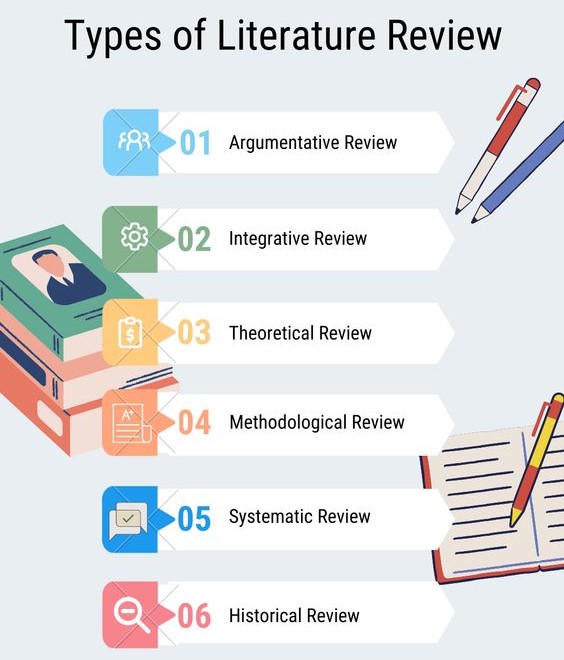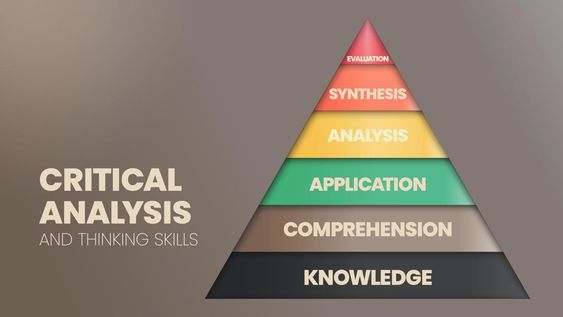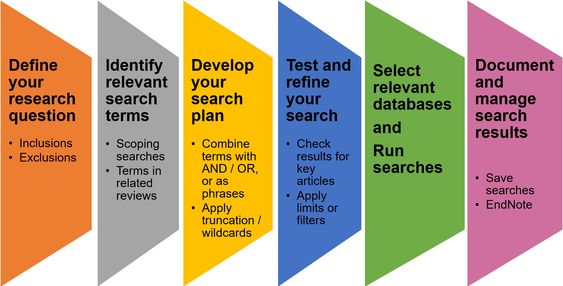The nursing research paper literature review is the cornerstone of a compelling and insightful study. It serves as a foundation, showcasing the existing knowledge base and identifying gaps that your research will address. Crafting a compelling nursing research paper literature review requires meticulous planning, strategic searching, and a keen eye for critical analysis.
This guide will walk you through the essential steps to ensure your literature review is both comprehensive and impactful.
The Essence of a Literature Review
A literature review is a critical analysis of previously published research on a specific topic. It's an essential part of research paper writing, serving several crucial functions:
1. Establishes Context: It sets the stage for your own research by providing a clear understanding of what's already been studied on the topic. This helps readers understand the significance of your work and how it fits within the broader field.
2. Identifies Gaps: By examining existing research, you can identify areas where knowledge is lacking. This helps you define a specific research question or problem that your study will address.
3. Builds a Foundation: You synthesize existing knowledge, summarizing key findings, identifying major theories and methodologies, and highlighting important trends and debates. This forms a solid base for your own research.
4. Demonstrates Expertise: It shows your understanding of the subject matter and your ability to critically analyze and synthesize information.
5. Justifies Your Research: The review helps demonstrate why your research is important and necessary. It establishes the need for your study by showcasing the gaps in existing knowledge.
Types of Literature Reviews:
- Narrative Review: A descriptive summary of the existing literature, highlighting key findings and trends.
- Systematic Review: A comprehensive and rigorous analysis of all relevant research on a topic, using specific methods to ensure objectivity and transparency.
- Meta-Analysis: A statistical technique used to combine results from multiple studies on a topic, allowing for a more powerful analysis of the overall effect.

Key Features of a Good Literature Review:
- Focused: It's tailored to your specific research question or topic.
- Comprehensive: It includes all relevant and significant research on the topic.
- Critical: It evaluates the strengths and weaknesses of existing research, identifying potential biases and methodological limitations.
- Synthesized: It doesn't just list findings but analyzes and integrates them, highlighting key themes and relationships.
- Organized: It uses a clear and logical structure, allowing readers to easily follow the flow of information.
- Citable: It includes proper citations and references to all sources.
Writing a Literature Review:
- Identify your topic and research question.
- Search for relevant literature using databases, journals, and other sources.
- Critically evaluate the sources, considering their methodology, findings, and limitations.
- Organize your review, grouping related studies and identifying common themes or debates.
- Write a clear and concise summary of each source, highlighting key findings.
- Synthesize the literature, analyzing how the different studies relate to each other and to your research question.
- Identify gaps in the literature and the significance of your own research.
Why Your Nursing Research Paper Literature Review Matters
A well-crafted nursing research paper literature review serves multiple purposes:
- Demonstrates Expertise: It showcases your understanding of the existing knowledge base and your ability to analyze and synthesize complex information.
- Identifies Gaps: It highlights areas where more research is needed, providing justification for your own study.
- Provides Context: It establishes the context for your research question, explaining how your study builds on previous work.
- Guides Research Design: The findings from your literature review can inform your research methods and data analysis strategies.
In essence, a literature review is the cornerstone of a strong research paper. It provides context, identifies gaps, builds a foundation, demonstrates expertise, and ultimately justifies your research. By carefully crafting your review, you can make a compelling case for the importance and originality of your work.
Strategies for Crafting a Nursing Research Paper Literature Review
1. Defining Your Scope:
Before diving into the vast ocean of nursing research, you need a clear compass. Define your research question and specific objectives. This will guide your search, ensuring you focus on relevant studies and avoid getting lost in irrelevant information. Your research question should be specific, measurable, achievable, relevant, and time-bound (SMART).
2. Building a Solid Search Strategy:
A successful nursing research paper literature review hinges on a robust search strategy. Begin by identifying relevant keywords related to your research question. Use a combination of general and specific terms to capture the full breadth of the literature. Explore different databases like PubMed, CINAHL, Nursing Papers and Google Scholar, each offering unique advantages for nursing research.

3. Selecting High-Quality Sources:
Not all sources are created equal. Prioritize peer-reviewed journal articles published in reputable nursing journals. Carefully consider the credibility of websites and online resources, ensuring they are from recognized institutions or experts in the field.
4. Organizing Your Information:
As you gather articles, use a reference management software like EndNote or Zotero to organize and annotate them efficiently. Create folders for different themes or topics within your research question, and systematically record key findings, strengths, weaknesses, and gaps within each article.
5. Writing Your Nursing Research Paper Literature Review:
Once you have a robust collection of relevant articles, it's time to craft your nursing research paper literature review. Remember, this section is not a mere summary of each article. Instead, it should synthesize and critically analyze the literature, revealing underlying themes, controversies, and inconsistencies.
6. Structure is Key:
A well-structured nursing research paper literature review is essential for readability and clarity. Consider these common structures:
- Chronological: This approach traces the evolution of research on your topic, highlighting key developments and shifts in understanding over time.
- Thematic: Group articles by common themes or concepts, exploring different perspectives and debates within each area.
- Methodological: Organize the literature based on research methods employed, focusing on the strengths and limitations of each approach.
7. Beyond the Basics: Critical Analysis and Synthesis
The true power of a nursing research paper literature review lies in its critical analysis and synthesis. Don't merely report what others have found. Instead, engage with the literature, asking probing questions:
- What are the key findings and conclusions of each study?
- What are the strengths and limitations of each study?
- What are the gaps in the existing research?
- How do the findings relate to your own research question?

8. Identifying Gaps and Opportunities:
A well-written nursing research paper literature review should not only summarize existing knowledge but also pinpoint areas where more research is needed. Identify contradictions, inconsistencies, or unanswered questions that your study aims to address.
9. Weaving a Coherent Narrative
Your nursing research paper literature review should flow seamlessly, presenting a clear and persuasive argument for the need for your research. Use transitions and connecting phrases to guide the reader through your analysis. A strong narrative demonstrates your understanding of the literature and its relevance to your own research.
10. Maintaining Objectivity and Avoiding Bias
Objectivity is crucial in a nursing research paper literature review. Present information fairly and acknowledge both supporting and contradictory evidence. Avoid overstating the significance of specific findings or presenting opinions as facts.
11. Using Evidence and Quotes
When referencing specific findings or arguments, use direct quotes sparingly. Instead, paraphrase and cite sources appropriately using a consistent citation style. This demonstrates your understanding of the material without overwhelming the reader.
12. The Art of Concise Writing
While comprehensiveness is essential, brevity is equally important. Use clear and concise language, avoiding jargon and unnecessary details. Focus on conveying the most important findings and insights from the literature.
13. Revising and Editing
After completing your first draft, revisit your nursing research paper literature review with a critical eye. Ensure clarity, conciseness, and logical flow. Seek feedback from peers or mentors to identify areas for improvement.
14. The Importance of Citations
Accurate and consistent citations are paramount in any nursing research paper literature review. Use a recognized citation style (e.g., APA, MLA) and follow it meticulously throughout your work. This ensures the credibility of your review and acknowledges the work of others.
15. Conclusion and Significance
Conclude your nursing research paper literature review with a summary of key findings and a clear statement about the significance of your research. Restate your research question and highlight how your study will address existing gaps and contribute to the broader understanding of the topic.
16. Iterative Process:
The process of writing a nursing research paper literature review is often iterative. You may need to revisit your search strategy, refine your analysis, or revise your writing as your research evolves. Embrace this iterative process, as it allows you to continuously refine your work and ensure its quality.

18. Beyond the Paper: The Ongoing Journey
The nursing research paper literature review is not a one-time exercise. As you progress through your research, continue to engage with the literature, staying updated on new findings and incorporating relevant information into your evolving study. This ongoing process ensures your work remains relevant and contributes meaningfully to the field of nursing.
Navigating the Labyrinth: Your Roadmap to Success
Writing a nursing research paper literature review requires dedication, critical thinking, and a systematic approach. By following the steps outlined in this guide, you can navigate the labyrinth of research and craft a compelling and insightful review that serves as a solid foundation for your study.
The nursing research paper literature review is a crucial component of any research project. By mastering the art of crafting a comprehensive and insightful review, you equip yourself to conduct meaningful and impactful research that contributes to the advancement of nursing knowledge and practice.
Nursing Research Paper Literature Review Help
At Exemplary Dissertations, we understand that writing an impactful literature review for a nursing research paper can be a daunting task to many learners. Thus, we provide professional nursing research paper literature review help to take the weight of writing assignments off your back. Talk to us today for the best nursing research paper writing services.